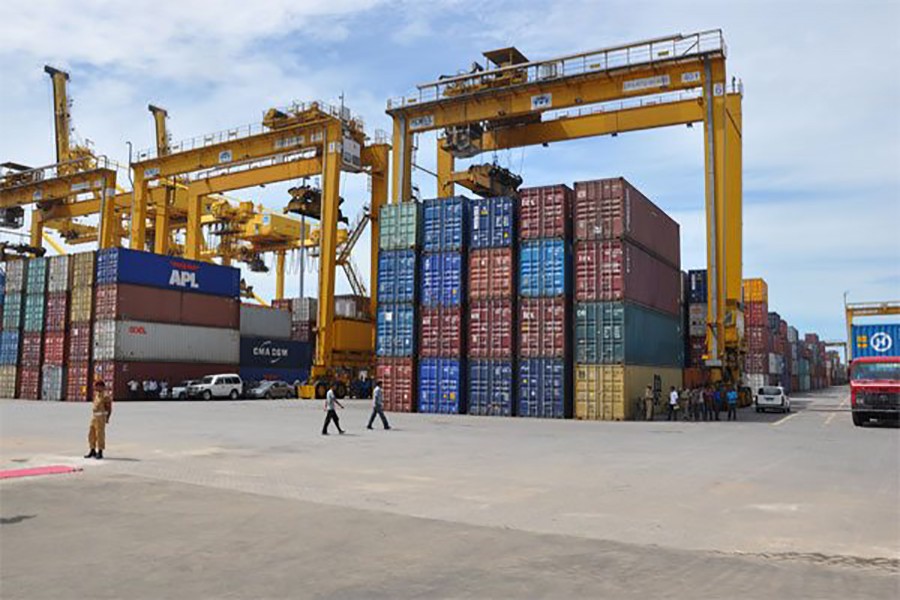Bangladesh in all likelihood would face challenges in relation to its export trade, once it shakes off its least developed country (LDC) status.
The existing incentive regime will no more remain valid as soon as it goes out of the list of LDCs.
The country will be able to benefit from its existing policy of incentivising exports until 2023 as an LDC. Once it graduates from this grouping in 2024, the importing nations may raise questions about its eligibility to enjoy the benefits meant for the LDCs.
The current policy on subsidies then could be incompatible with the World Trade Organisation (WTO) Agreement on Agriculture and the Agreement on Subsidies and Countervailing Measures.
Currently Bangladesh is exempt from the prohibitions on export subsidies under both the agreements, experts have told the FE.
They have also said the existing Export Development Fund (EDF) may also come into question after its graduation from the LDC status.
In the post-LDC era Bangladesh will need to comply with the agreements, which would require a revision of government support for various sectors.
However, the government agencies dealing with such matters are yet to take any concrete move to combat such obstacles the country may face from 2024 onwards.
Md Munir Chowdhury, director general at the WTO Cell of the Ministry of Commerce (MoC), told the FE: "We've to undertake many studies on how to combat such obstacles to our trade after the end of the transitional period."
Mr Chowdhury said, "The EU may give us three years more until 2027, so we'll get some space."
He, however, admitted that Bangladesh would definitely face many trade-related complexities after the "smooth graduation" from the LDC status.
Citing Indian experiences, the chief of the WTO Cell said, "Actually we need skilled manpower who can efficiently negotiate trade disputes and a pool of attorneys to fight legal battles with other competitive nations."
Manzur Ahmed, well-versed in the WTO affairs, told the FE that the existing cash subsidy would be "actionable" under the rules of the international institution that oversees the global trade rules for nations.
The importing nations would impose extra duties on products from Bangladesh, if the existing incentive continued to exist, he said.
He cited the example of India imposing the countervailing duty on import of jute and jute goods, as it believes such an extra duty is needed on the products from Bangladesh to protect its local industry.
"Nobody is now raising any question over the matter as they believe this is not harming their industries," Mr Ahmed said.
He, however, said there were many ways to subsidise the selected sectors to remain competitive in the global market.
"We've identified some 12 ways to subsidise, which will help sustain the export earnings sectors even from 2024 and onwards," he disclosed.
The twelve-point measure would be placed before the revenue board within the current month, he said.
Dr Zaidi Sattar, chairman of the Policy Research Institute of Bangladesh (PRI), a privately-owned think-tank, said, "Once we graduate out of the LDC (least developed country) status, (2024-2027), the practice of using para-tariffs for protection will be gone."
"Now we have little or no bound tariffs in manufactures and bound at 200 per cent for agriculture. After graduation, we will have ceilings on manufacturing tariffs, and much lower bounds for agriculture," Dr Sattar noted.
Basically, tariffs and protection would have to be substantially rationalised, the economist noted.
On the other hand, Dr Zahid Hussain, lead economist at the Dhaka office of the World Bank, said the greatest impacts of higher tariffs and more stringent rules of origin were expected to be on exports in the European Union, which account for more than 55 per cent of the total merchandise shipments.
Dr Hussain said the extent to which firms would be able to adapt would depend on a host of domestic and international factors.
"Larger firms with easier access to capital and technology and better readiness to move into higher value-added segments have better chances of remaining competitive, while for small firms already operating at very small margins, losing the tariff differential could pose an existential threat," he observed.
He pointed out that the need for an assessment became more pressing as graduation from the LDC status in 2024 would require a review of incentives any way.
Dr Hussain said Bangladesh would lose access to duty-free, quota-free (DFQF) arrangements for LDCs and also to simplified rules of origin reserved for LDCs.
In the European Union, Bangladesh will remain eligible for duty-free and quota-free market access under the Everything But Arms (EBA) scheme for three years after the graduation, given the scheme's "smooth transition" provision.
The terms under which it would have access to the EU market after 2027 would depend on the regulations under the new Generalised System of Preferences (GSP).
"The current regulations will cease to be effective at the end of 2023 and are expected to be replaced by new regulations, beginning in 2024," Dr Hussain said.
Dr Khandkar Golam Moazzem, director (research) at the country's oldest private think-tank Centre for Policy Dialogue (CPD) told the FE that Bangladesh should now pursue indirect benefits for the exporters to ensure a sustainable growth in export receipts.
"Our cost of doing business is high and most of the raw materials are imported, so right now we should pursue an incentive policy which will not face any objection from the importing nations." (Concluded)
jasimharoon@yahoo.com


